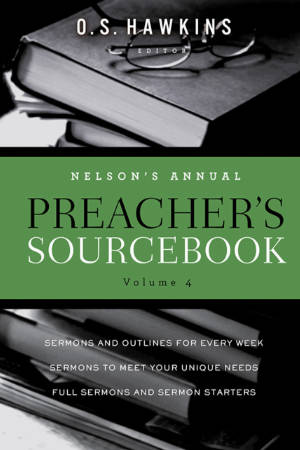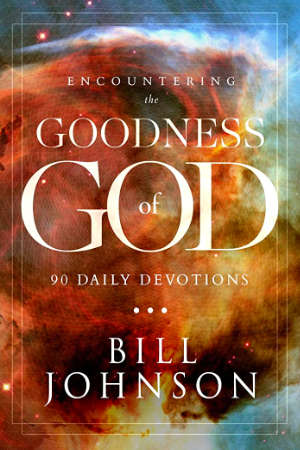
Why I Am a Premillennialist Sermon by Dr. W. A. Criswell
Matthew 24:29–31
Premillennialism is the belief that God’s Word teaches that sin is deep and desperate; that the world is lost and dark, and that the only hope of a heavenly kingdom lies in the intervention of God.
Only in the second coming of Christ will there be that peace and heavenly refrain for which we pray in the goodness and grace of the Lord. That is premillennialism.
Postmillennialism is the belief that in the evolution of the species we shall get better and better; that, by the preaching of the gospel and by the influence of the Holy Spirit in the earth, we shall breed out of us the claw, and the fang, and the ape, and shall finally come into a blessedness of purity and peace, at which time the Lord will come and reign over a world already beautiful in its life and program.
World War II knocked that doctrine out of the theological academic world. Nobody today would believe or get up and say that we are going to get better and better until finally everything is perfect.
Amillennialism is the doctrine that there is no millennium at all and there will be no return of Christ whatsoever. Allusions to these things in the Bible are merely figures of speech, symbolical, and have no real meaning whatsoever.
It is “spiritualizing”—taking the words of the Bible and making them mean whatever the man chooses, spiritualizing it all away—the doctrine of the coming of the Lord, His millennial reign in the earth, and every hope that we have in Him.
Years ago when I was accused of being a premillennialist, I began to look at the Bible carefully and earnestly to see whether that was what I was, and if that was what the Bible taught.
I looked at the great eschatological address of our Savior in Matthew 24 and 25, and I read things like this: “Immediately after the tribulation of those days . . . shall appear the sign of the Son of man in heaven” I saw in the first chapter of Revelation the presentation of the glorified, resurrected, immortalized Lord Jesus.
The second and the third chapters were the story, the course of the church represented by the seven churches of Asia.
Then beginning at chapter 4, the church is raptured away. It disappears and it does not reappear until the nineteenth chapter of the Revelation, when the church comes with the Lord in glory.
Then the twentieth chapter of the Revelation is the marvelous and glorious millennium. And between the rapture of the church, the taking away of the church, and the glorious return of the Lord with all of His saints, that is the tribulation period; just as the Lord said, “And after the tribulation of those days . . . shall appear the sign of the Son of Man in glory.” [Matthew 24:29-31]
This is typical of what I read in the Bible. And furthermore, I learned in reading church history that this premillennial belief is the faith of the ancient church, and it is the faith of the ancient church fathers.
Papias, who was a disciple of the apostle John, Clement of Rome, Justin Martyr, Irenaeus, Tertullian, Cyprian, and Lactantius—all of them were premillennial.
Edward Gibbon in his Decline and Fall of the Roman Empire states, “The ancient and popular doctrine of the millennium was carefully inculcated by a succession of Fathers, from Justin Martyr and Irenaeus, men who conversed with the immediate disciples of the apostles, down to Lactantius, who was the preceptor”—the teacher—“of the son of Constantine.
It appears to have been the reigning sentiment of all orthodox believers. It was productive of the most salutary effect upon the faith and practice of Christians.”
But after the conversion of Constantine, and after the early fathers who knew the apostles and their followers, there was a great theological change away from premillennialism to amillennialism.
The theological confrontation to the premillennial faith was born in the Roman Church. That Church teaches that the kingdom is the church and the church is the kingdom.
This was facilitated when Constantine was converted because the church was no longer the object of persecution, and Christianity became the state religion in the Roman Empire.
That Roman theology of amillennialism originated in the teachings of Augustine, who died in AD 430. He concluded that we are in the millennium now; amillennialists believe that this is the millennium, which is one of the most amazing theological persuasions that I could ever come into in my life.
I think of a thousand Scripture passages describing the glorious millennium, such as Isaiah 11:6-8: “The wolf shall dwell with the lamb, and the leopard shall lie down with the kid . . . and the lion shall eat straw like an ox.
They shall not hurt nor destroy in all God’s holy mountain; for the earth shall be filled with the knowledge of the Lord, as the waters cover the sea” [Isaiah 11:6-9].
That is now? This is that—the millennium of God? It is to me unthinkable. Turning aside from the premillennial faith makes the Bible a book of impossible, jumbled enigmas.
It finally comes to have no meaning whatsoever. Hermeneutics is the art and science of biblical interpretation, and the loss of biblical distinctions creates utter hermeneutical confusion.
For example, there are in the Bible three distinct classifications. According to the Word of God all mankind is divided into Jew, Gentile, and church. That’s according to 1 Corinthians 10:32, where Paul says all humanity is divided into three parts: the Jew, the Gentile, and the church.
Amillennialism is a tragic, human interpretation that loses sight of those three distinctions, and it makes the Bible increasingly meaningless. These who obliterate the distinction between church and Israel and the Gentiles put the church in place of Israel and Israel in place of the church.
But the third chapter of the Book of Ephesians says, and Paul expatiates upon it—the church was a myst?rion: it was a secret kept in the heart of God until He revealed it to His apostles. There is no church ever seen by the prophets.
They never knew it, this church age in which we live, this age of the Spirit, of the grace of our Lord Jesus Christ, this age of the calling out of the new body made up of Jew and Gentile, called the bride of Christ.
This age was a secret in the heart of God, and no prophet ever saw it until God revealed it to His holy apostles. Therefore, when I read the Old Testament I’ll read about the Jew, and I’ll read about the Gentile, and I’ll read about God’s purposes in bringing us to a glorious millennial kingdom. But I will never read about the church until I come to the New Testament.
The apostle Paul will say in Romans 11, “Hath God cast away His people? God forbid!” Then he speaks about God’s mercies towards Israel, but the amillennialist and the spiritualizer says that there is no future for Israel, no future for the Jew, God is done with Him.
But if God breaks His promise to Israel; if God doesn’t keep His word with the Jew, How do I know He will keep His word to me? If God lies to the Jew, How do I know but that God will lie to me?
In Numbers 23, verse 19, there is a descriptive sentence about the Lord that is beautiful, “God is not a man that He should lie, neither the Son of Man that He should repent.
Hath He said and shall He not do it? Or hath He spoken and shall He not make it good?” Israel is going back to Palestine, and God is giving them that land, and they will never be uprooted again.
It is on the basis of the promise of God that He will save us, and He will keep us, and that someday He will raise us from the dead, if we fall asleep before He comes. And He will give to us a kingdom, a heaven, if you believe that and will trust God for it.
W. A. Criswell
William Arlington Criswell, born on December 19, 1909, in Eldorado, Oklahoma, was a prominent Baptist pastor and religious leader in the United States. A graduate of Baylor University in Waco, Texas, he continued his studies at the Southwestern Baptist Theological Seminary.






